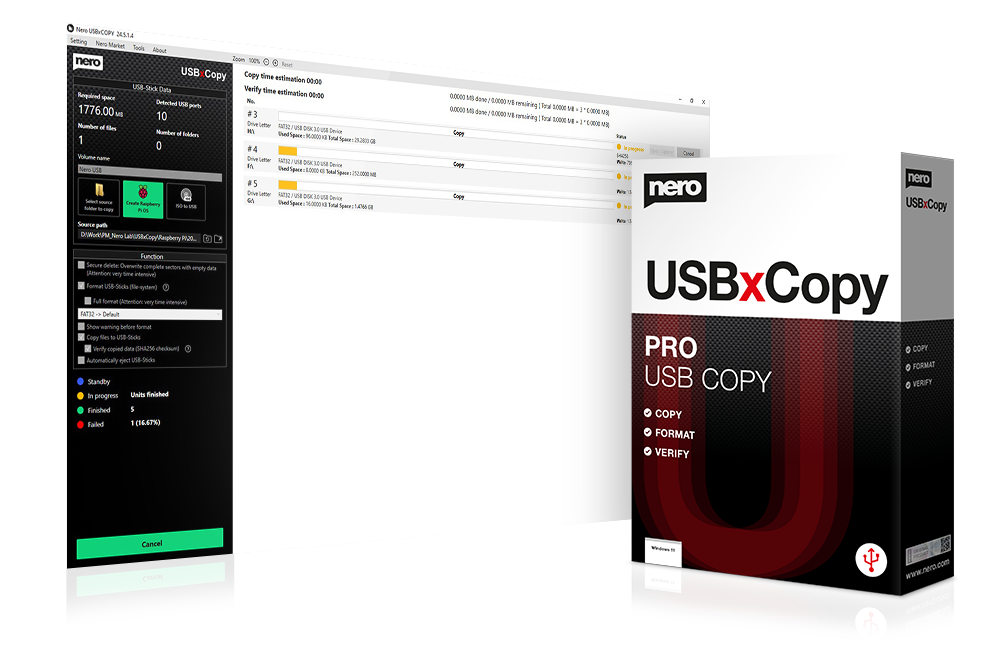![[Updated] Steering Clear of Echo Chambers in Instagram Interactions](https://thmb.techidaily.com/a1f466c594234ad34f641e87364869a2929ae1aee45db635b3f848c5daefbda2.jpg)
[Updated] Steering Clear of Echo Chambers in Instagram Interactions

Steering Clear of Echo Chambers in Instagram Interactions
Why Fake Likes will Ruin Your Instagram Account 
Shanoon Cox
Mar 27, 2024• Proven solutions
Many influencers believe they have found a secret to quick growth on Instagram - buying fake likes. They believe that fake likes on Instagram will provide greater exposure at a faster rate. Indeed, brands are more likely to work with someone who has 1,000 likes instead of 100 on a picture. That is why fake like buying has become such a popular idea among influencers.
But it is not recommended for influencers to buy fake likes on Instagram. If you are considering this option to boost your profile, please give the following points a read through before you make a final decision.
- Part1: Why Do Influencers Buy Fake Likes
- Part2: 3 Reasons to Avoid Buying Instagram Likes
- Part3: How to Identify Accounts with Fake Likes
Part 1: Why Do Influencers Buy Fake Likes?
Before 2016, the most important factor for an Instagram influencer was their follower count. But the platform began to care more about engagement instead of followers, which is why brands are very interested in the likes that you are getting on each post.
Now people think about buying likes if they feel their engagement levels are not rising quickly enough for them to get more exposure or interesting sponsorship offers.
Part 2: 3 Reasons to Avoid Buying Instagram Likes
1. It Will Harm Your Engagement
When you have more followers on Instagram, it is inevitable that your engagement levels will decline. When an account has less than 1,000 followers, the engagement levels are around eight percent. It goes down to four percent when you have between 1,000 and 10,000 followers. Between 10,000 to 100,000 followers has an engagement level of around 2.4%. And it goes down to 1.7% when you are at a million.
What do all these numbers mean? It means that if you were to buy likes, you would be arousing suspicion of brands who may want to hire you for sponsorship purposes. Say you are buying a lot of likes because they are cheaper to get than followers. If you have 15,000 followers and an engagement level of 6 or 7 percent, your account is suspicious.
2. Buying Fake Likes is a Black Hole
It is so easy to think that you will be purchasing fake likes on Instagram for one or two uses. “I just want to promote a couple of my posts to gain exposure.” These are the words that every like buyer utters. A month later, they are furiously buying likes for every single post they put up on Instagram.
It is a vicious cycle, because you become addicted to those bought likes. And if you are doing all this to impress brands, you must keep up your engagement levels or they will assume you had a post go viral, which is not necessarily indicative of a popular account.
3. Violation of Instagram Rules
Instagram has very strict guidelines and rules of engagement. Buying likes and followers is against those rules. Of course, they are not going to strike down every single account that buys likes and followers. If they did, it would completely stop as a practice.
But there is a good chance that you will get caught eventually. And the risk is that your entire account is deleted, including all your followers, likes and posts. You may have a hard time opening up another account with the same identity.
And many of the sites that offer like buying services get shut down, which instantly impacts the likes you get on your next posts. It can turn into a race of you buying more likes from other sellers, until they get shut down too.
Part 3: How to Identify Accounts with Fake Likes
company, user or members of the same household. Action! - screen and game recorder</a>
1. Followers and Engagement Levels Are Off
There can be anomalies in how many likes an Instagram post gets relative to the account’s followers. For instance, a post may be shared by an influencer and celebrity, causing it to go viral.
But accounts that have multiple posts with engagement levels of 9 or 10 percent, or even higher, are immediately suspicious. It is not probable for an account to have such a high level of engagement without some like buying.
Those who are insistent on buying likes will need to buy followers to match up the engagement levels with the numbers we mentioned above. But it is more hassle than it is worth!
2. Posts and Likes Do Not Match Up
When an account has very few posts, but any likes on each post, it is unusual. It generally takes a lot of posts before an account can rack up a high follower and like count. The only time accounts with few posts have a lot of likes is when they are started by a celebrity.
If you notice an influencer has three or four posts in the past month, but they have thousands of likes on each post, it is suspicious. There is a good chance the influencer used inauthentic methods of gaining those likes.
3. Spam Comments
Ever noticed that some Instagram accounts are dominated by spam comments? You may see two or three genuine-sounding comments in the section. Everything else is some version of “follow me” or a single word phrase. It is indicative of an account where likes, followers and comments are bought.
Influencers think they can trick people into buying their engagement levels with spam comments. But companies that care about where they spend their marketing budget will do research that goes beyond a cursory glance at the number of followers, likes and comments. They will notice spam comments.
 HD Video Converter Factory Pro
HD Video Converter Factory Pro
Conclusion
Instagram is about so much more than showing off your latest look or meal. It is a platform dominated by influencers, which is why brands are so interested in leveraging it for their own success. Influencers get tempted to buy likes so they can raise their profile and attract better sponsorship offers.
But purchasing likes on Instagram is a complex process that is fairly easy to spot. Unless you want to go down a black hole of constantly buying likes and followers, it is best to focus your efforts on organically growing your follower count and engagement levels.
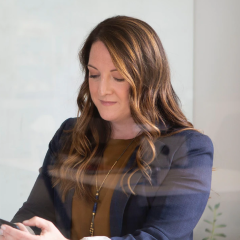
Shanoon Cox
Shanoon Cox is a writer and a lover of all things video.
Follow @Shanoon Cox
Shanoon Cox
Mar 27, 2024• Proven solutions
Many influencers believe they have found a secret to quick growth on Instagram - buying fake likes. They believe that fake likes on Instagram will provide greater exposure at a faster rate. Indeed, brands are more likely to work with someone who has 1,000 likes instead of 100 on a picture. That is why fake like buying has become such a popular idea among influencers.
But it is not recommended for influencers to buy fake likes on Instagram. If you are considering this option to boost your profile, please give the following points a read through before you make a final decision.
- Part1: Why Do Influencers Buy Fake Likes
- Part2: 3 Reasons to Avoid Buying Instagram Likes
- Part3: How to Identify Accounts with Fake Likes
Part 1: Why Do Influencers Buy Fake Likes?
Before 2016, the most important factor for an Instagram influencer was their follower count. But the platform began to care more about engagement instead of followers, which is why brands are very interested in the likes that you are getting on each post.
Now people think about buying likes if they feel their engagement levels are not rising quickly enough for them to get more exposure or interesting sponsorship offers.
Part 2: 3 Reasons to Avoid Buying Instagram Likes
1. It Will Harm Your Engagement
When you have more followers on Instagram, it is inevitable that your engagement levels will decline. When an account has less than 1,000 followers, the engagement levels are around eight percent. It goes down to four percent when you have between 1,000 and 10,000 followers. Between 10,000 to 100,000 followers has an engagement level of around 2.4%. And it goes down to 1.7% when you are at a million.
What do all these numbers mean? It means that if you were to buy likes, you would be arousing suspicion of brands who may want to hire you for sponsorship purposes. Say you are buying a lot of likes because they are cheaper to get than followers. If you have 15,000 followers and an engagement level of 6 or 7 percent, your account is suspicious.
2. Buying Fake Likes is a Black Hole
It is so easy to think that you will be purchasing fake likes on Instagram for one or two uses. “I just want to promote a couple of my posts to gain exposure.” These are the words that every like buyer utters. A month later, they are furiously buying likes for every single post they put up on Instagram.
It is a vicious cycle, because you become addicted to those bought likes. And if you are doing all this to impress brands, you must keep up your engagement levels or they will assume you had a post go viral, which is not necessarily indicative of a popular account.
3. Violation of Instagram Rules
Instagram has very strict guidelines and rules of engagement. Buying likes and followers is against those rules. Of course, they are not going to strike down every single account that buys likes and followers. If they did, it would completely stop as a practice.
But there is a good chance that you will get caught eventually. And the risk is that your entire account is deleted, including all your followers, likes and posts. You may have a hard time opening up another account with the same identity.
And many of the sites that offer like buying services get shut down, which instantly impacts the likes you get on your next posts. It can turn into a race of you buying more likes from other sellers, until they get shut down too.
Part 3: How to Identify Accounts with Fake Likes
1. Followers and Engagement Levels Are Off
There can be anomalies in how many likes an Instagram post gets relative to the account’s followers. For instance, a post may be shared by an influencer and celebrity, causing it to go viral.
But accounts that have multiple posts with engagement levels of 9 or 10 percent, or even higher, are immediately suspicious. It is not probable for an account to have such a high level of engagement without some like buying.
Those who are insistent on buying likes will need to buy followers to match up the engagement levels with the numbers we mentioned above. But it is more hassle than it is worth!
2. Posts and Likes Do Not Match Up
When an account has very few posts, but any likes on each post, it is unusual. It generally takes a lot of posts before an account can rack up a high follower and like count. The only time accounts with few posts have a lot of likes is when they are started by a celebrity.
If you notice an influencer has three or four posts in the past month, but they have thousands of likes on each post, it is suspicious. There is a good chance the influencer used inauthentic methods of gaining those likes.
3. Spam Comments
Ever noticed that some Instagram accounts are dominated by spam comments? You may see two or three genuine-sounding comments in the section. Everything else is some version of “follow me” or a single word phrase. It is indicative of an account where likes, followers and comments are bought.
Influencers think they can trick people into buying their engagement levels with spam comments. But companies that care about where they spend their marketing budget will do research that goes beyond a cursory glance at the number of followers, likes and comments. They will notice spam comments.
Conclusion
Instagram is about so much more than showing off your latest look or meal. It is a platform dominated by influencers, which is why brands are so interested in leveraging it for their own success. Influencers get tempted to buy likes so they can raise their profile and attract better sponsorship offers.
But purchasing likes on Instagram is a complex process that is fairly easy to spot. Unless you want to go down a black hole of constantly buying likes and followers, it is best to focus your efforts on organically growing your follower count and engagement levels.

Shanoon Cox
Shanoon Cox is a writer and a lover of all things video.
Follow @Shanoon Cox
Shanoon Cox
Mar 27, 2024• Proven solutions
Many influencers believe they have found a secret to quick growth on Instagram - buying fake likes. They believe that fake likes on Instagram will provide greater exposure at a faster rate. Indeed, brands are more likely to work with someone who has 1,000 likes instead of 100 on a picture. That is why fake like buying has become such a popular idea among influencers.
But it is not recommended for influencers to buy fake likes on Instagram. If you are considering this option to boost your profile, please give the following points a read through before you make a final decision.
- Part1: Why Do Influencers Buy Fake Likes
- Part2: 3 Reasons to Avoid Buying Instagram Likes
- Part3: How to Identify Accounts with Fake Likes
Part 1: Why Do Influencers Buy Fake Likes?
Before 2016, the most important factor for an Instagram influencer was their follower count. But the platform began to care more about engagement instead of followers, which is why brands are very interested in the likes that you are getting on each post.
Now people think about buying likes if they feel their engagement levels are not rising quickly enough for them to get more exposure or interesting sponsorship offers.
Part 2: 3 Reasons to Avoid Buying Instagram Likes
1. It Will Harm Your Engagement
When you have more followers on Instagram, it is inevitable that your engagement levels will decline. When an account has less than 1,000 followers, the engagement levels are around eight percent. It goes down to four percent when you have between 1,000 and 10,000 followers. Between 10,000 to 100,000 followers has an engagement level of around 2.4%. And it goes down to 1.7% when you are at a million.
What do all these numbers mean? It means that if you were to buy likes, you would be arousing suspicion of brands who may want to hire you for sponsorship purposes. Say you are buying a lot of likes because they are cheaper to get than followers. If you have 15,000 followers and an engagement level of 6 or 7 percent, your account is suspicious.
2. Buying Fake Likes is a Black Hole
It is so easy to think that you will be purchasing fake likes on Instagram for one or two uses. “I just want to promote a couple of my posts to gain exposure.” These are the words that every like buyer utters. A month later, they are furiously buying likes for every single post they put up on Instagram.
It is a vicious cycle, because you become addicted to those bought likes. And if you are doing all this to impress brands, you must keep up your engagement levels or they will assume you had a post go viral, which is not necessarily indicative of a popular account.
 dotConnect for Oracle is an ADO.NET data provider for Oracle with Entity Framework Support.
dotConnect for Oracle is an ADO.NET data provider for Oracle with Entity Framework Support.
3. Violation of Instagram Rules
Instagram has very strict guidelines and rules of engagement. Buying likes and followers is against those rules. Of course, they are not going to strike down every single account that buys likes and followers. If they did, it would completely stop as a practice.
But there is a good chance that you will get caught eventually. And the risk is that your entire account is deleted, including all your followers, likes and posts. You may have a hard time opening up another account with the same identity.
And many of the sites that offer like buying services get shut down, which instantly impacts the likes you get on your next posts. It can turn into a race of you buying more likes from other sellers, until they get shut down too.
Part 3: How to Identify Accounts with Fake Likes
1. Followers and Engagement Levels Are Off
There can be anomalies in how many likes an Instagram post gets relative to the account’s followers. For instance, a post may be shared by an influencer and celebrity, causing it to go viral.
But accounts that have multiple posts with engagement levels of 9 or 10 percent, or even higher, are immediately suspicious. It is not probable for an account to have such a high level of engagement without some like buying.
Those who are insistent on buying likes will need to buy followers to match up the engagement levels with the numbers we mentioned above. But it is more hassle than it is worth!
2. Posts and Likes Do Not Match Up
When an account has very few posts, but any likes on each post, it is unusual. It generally takes a lot of posts before an account can rack up a high follower and like count. The only time accounts with few posts have a lot of likes is when they are started by a celebrity.
If you notice an influencer has three or four posts in the past month, but they have thousands of likes on each post, it is suspicious. There is a good chance the influencer used inauthentic methods of gaining those likes.
3. Spam Comments
Ever noticed that some Instagram accounts are dominated by spam comments? You may see two or three genuine-sounding comments in the section. Everything else is some version of “follow me” or a single word phrase. It is indicative of an account where likes, followers and comments are bought.
Influencers think they can trick people into buying their engagement levels with spam comments. But companies that care about where they spend their marketing budget will do research that goes beyond a cursory glance at the number of followers, likes and comments. They will notice spam comments.
Conclusion
Instagram is about so much more than showing off your latest look or meal. It is a platform dominated by influencers, which is why brands are so interested in leveraging it for their own success. Influencers get tempted to buy likes so they can raise their profile and attract better sponsorship offers.
But purchasing likes on Instagram is a complex process that is fairly easy to spot. Unless you want to go down a black hole of constantly buying likes and followers, it is best to focus your efforts on organically growing your follower count and engagement levels.

Shanoon Cox
Shanoon Cox is a writer and a lover of all things video.
Follow @Shanoon Cox
Shanoon Cox
Mar 27, 2024• Proven solutions
Many influencers believe they have found a secret to quick growth on Instagram - buying fake likes. They believe that fake likes on Instagram will provide greater exposure at a faster rate. Indeed, brands are more likely to work with someone who has 1,000 likes instead of 100 on a picture. That is why fake like buying has become such a popular idea among influencers.
But it is not recommended for influencers to buy fake likes on Instagram. If you are considering this option to boost your profile, please give the following points a read through before you make a final decision.
- Part1: Why Do Influencers Buy Fake Likes
- Part2: 3 Reasons to Avoid Buying Instagram Likes
- Part3: How to Identify Accounts with Fake Likes
Part 1: Why Do Influencers Buy Fake Likes?
Before 2016, the most important factor for an Instagram influencer was their follower count. But the platform began to care more about engagement instead of followers, which is why brands are very interested in the likes that you are getting on each post.
Now people think about buying likes if they feel their engagement levels are not rising quickly enough for them to get more exposure or interesting sponsorship offers.
Part 2: 3 Reasons to Avoid Buying Instagram Likes
1. It Will Harm Your Engagement
When you have more followers on Instagram, it is inevitable that your engagement levels will decline. When an account has less than 1,000 followers, the engagement levels are around eight percent. It goes down to four percent when you have between 1,000 and 10,000 followers. Between 10,000 to 100,000 followers has an engagement level of around 2.4%. And it goes down to 1.7% when you are at a million.
What do all these numbers mean? It means that if you were to buy likes, you would be arousing suspicion of brands who may want to hire you for sponsorship purposes. Say you are buying a lot of likes because they are cheaper to get than followers. If you have 15,000 followers and an engagement level of 6 or 7 percent, your account is suspicious.
2. Buying Fake Likes is a Black Hole
It is so easy to think that you will be purchasing fake likes on Instagram for one or two uses. “I just want to promote a couple of my posts to gain exposure.” These are the words that every like buyer utters. A month later, they are furiously buying likes for every single post they put up on Instagram.
It is a vicious cycle, because you become addicted to those bought likes. And if you are doing all this to impress brands, you must keep up your engagement levels or they will assume you had a post go viral, which is not necessarily indicative of a popular account.
3. Violation of Instagram Rules
Instagram has very strict guidelines and rules of engagement. Buying likes and followers is against those rules. Of course, they are not going to strike down every single account that buys likes and followers. If they did, it would completely stop as a practice.
But there is a good chance that you will get caught eventually. And the risk is that your entire account is deleted, including all your followers, likes and posts. You may have a hard time opening up another account with the same identity.
And many of the sites that offer like buying services get shut down, which instantly impacts the likes you get on your next posts. It can turn into a race of you buying more likes from other sellers, until they get shut down too.
 Project Manager - Asset Browser for 3Ds Max
Project Manager - Asset Browser for 3Ds Max
Part 3: How to Identify Accounts with Fake Likes
1. Followers and Engagement Levels Are Off
There can be anomalies in how many likes an Instagram post gets relative to the account’s followers. For instance, a post may be shared by an influencer and celebrity, causing it to go viral.
But accounts that have multiple posts with engagement levels of 9 or 10 percent, or even higher, are immediately suspicious. It is not probable for an account to have such a high level of engagement without some like buying.
Those who are insistent on buying likes will need to buy followers to match up the engagement levels with the numbers we mentioned above. But it is more hassle than it is worth!
 Glary Utilities PRO - Premium all-in-one utility to clean, speed up, maintain and protect your PC
Glary Utilities PRO - Premium all-in-one utility to clean, speed up, maintain and protect your PC
2. Posts and Likes Do Not Match Up
When an account has very few posts, but any likes on each post, it is unusual. It generally takes a lot of posts before an account can rack up a high follower and like count. The only time accounts with few posts have a lot of likes is when they are started by a celebrity.
If you notice an influencer has three or four posts in the past month, but they have thousands of likes on each post, it is suspicious. There is a good chance the influencer used inauthentic methods of gaining those likes.
3. Spam Comments
Ever noticed that some Instagram accounts are dominated by spam comments? You may see two or three genuine-sounding comments in the section. Everything else is some version of “follow me” or a single word phrase. It is indicative of an account where likes, followers and comments are bought.
Influencers think they can trick people into buying their engagement levels with spam comments. But companies that care about where they spend their marketing budget will do research that goes beyond a cursory glance at the number of followers, likes and comments. They will notice spam comments.
Conclusion
Instagram is about so much more than showing off your latest look or meal. It is a platform dominated by influencers, which is why brands are so interested in leveraging it for their own success. Influencers get tempted to buy likes so they can raise their profile and attract better sponsorship offers.
But purchasing likes on Instagram is a complex process that is fairly easy to spot. Unless you want to go down a black hole of constantly buying likes and followers, it is best to focus your efforts on organically growing your follower count and engagement levels.

Shanoon Cox
Shanoon Cox is a writer and a lover of all things video.
Follow @Shanoon Cox
- Title: [Updated] Steering Clear of Echo Chambers in Instagram Interactions
- Author: Robert
- Created at : 2024-07-23 15:25:57
- Updated at : 2024-07-24 15:25:57
- Link: https://instagram-video-files.techidaily.com/updated-steering-clear-of-echo-chambers-in-instagram-interactions/
- License: This work is licensed under CC BY-NC-SA 4.0.
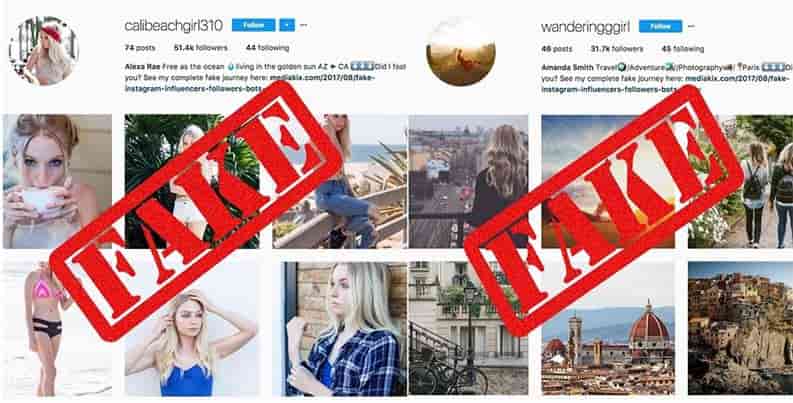
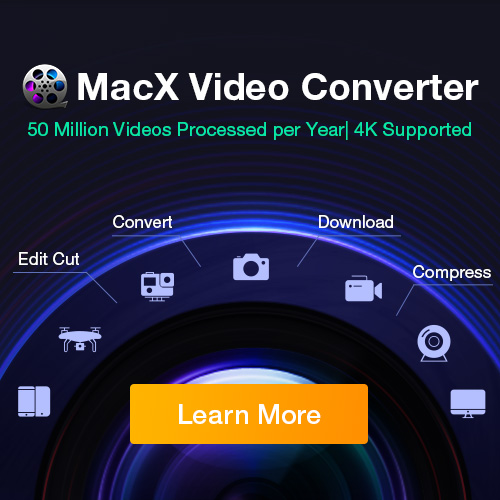
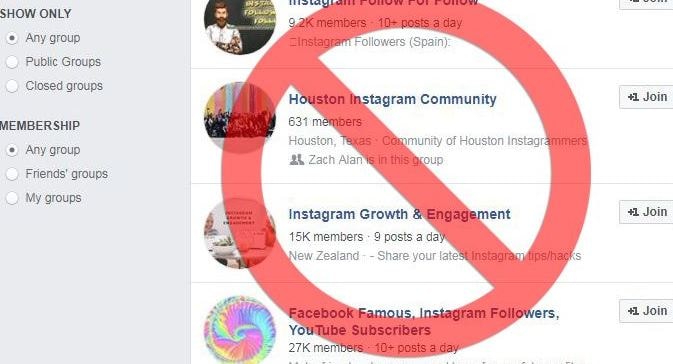
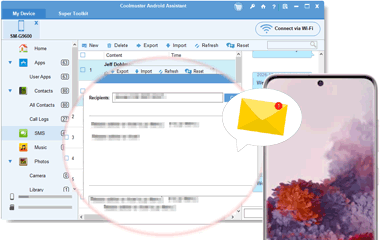

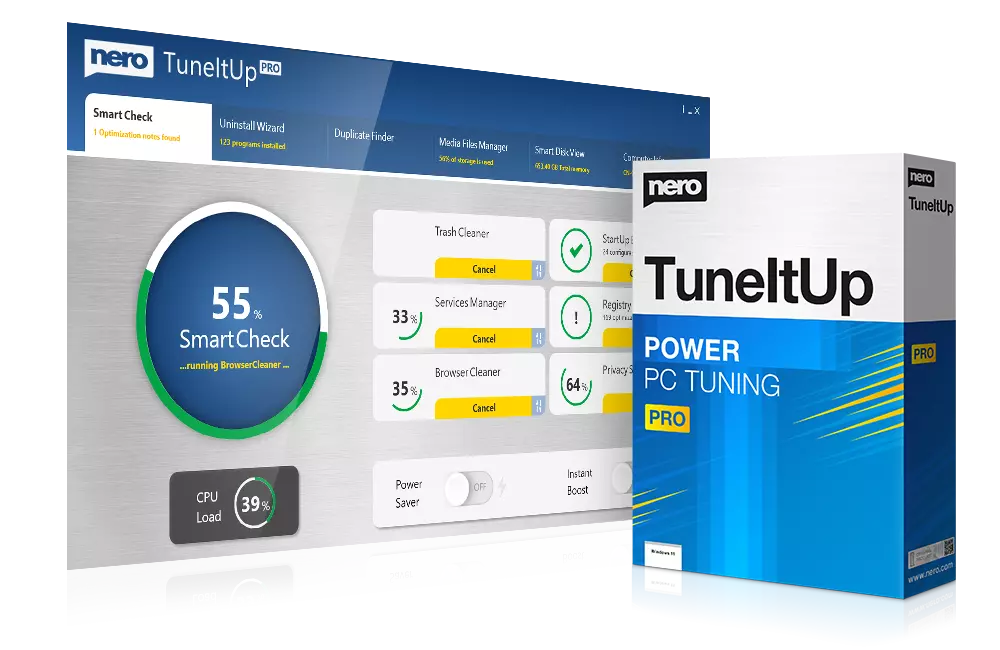 /a>
/a>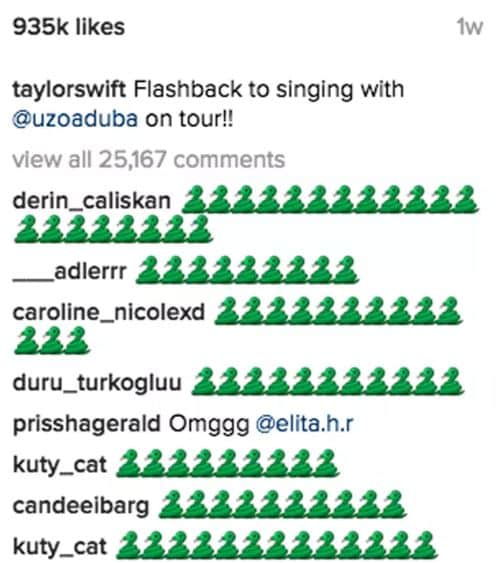
 Jet Profiler for MySQL, Enterprise Version: Jet Profiler for MySQL is real-time query performance and diagnostics tool for the MySQL database server. Its detailed query information, graphical interface and ease of use makes this a great tool for finding performance bottlenecks in your MySQL databases.
Jet Profiler for MySQL, Enterprise Version: Jet Profiler for MySQL is real-time query performance and diagnostics tool for the MySQL database server. Its detailed query information, graphical interface and ease of use makes this a great tool for finding performance bottlenecks in your MySQL databases. 

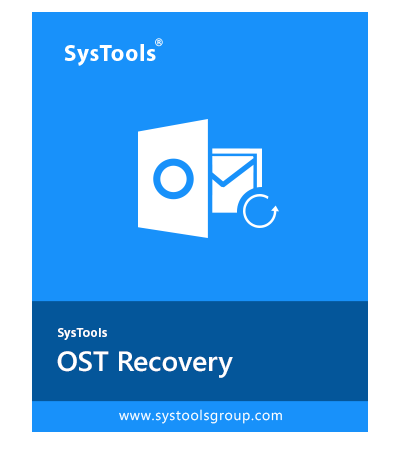
 vMix Basic HD - Software based live production. vMix Basic HD includes 4 inputs, 3 cameras, streaming, recording, playlist.
vMix Basic HD - Software based live production. vMix Basic HD includes 4 inputs, 3 cameras, streaming, recording, playlist.
